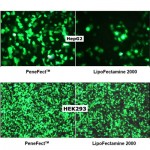Hot Products
Top 100 Antibodies
Customer Testimonials
"We tested the SuperECL™ Western Blotting Detection Kit sample, and it did work well, same as the Pierce’s one. BTW, your LiPure™ Plasmid Mini Kit works very well, better than others we used. Also I have been trying to convince our purchasing department you are a good supplier to be considered to ad..
"We love your product. Any chance you can send as a quote as last time for 2 items of 2× LiTaq™ Plus PCR Master Mix (+Dye) (or 1 item of M0025-100 if it is an option). It works great. Thank you very much!"
















